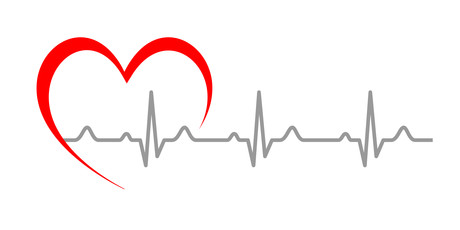Thousands of heart patients at high risk of second event

Patients who’ve had a heart attack are twice as likely to die prematurely compared to the general population, making secondary heart disease prevention essential.
This is according to a newly released report, ‘No Second Chances’, developed by the Baker Heart and Diabetes Institute. The report reveals that preventing secondary heart attacks and strokes is critical to combatting Australia’s number one killer — cardiovascular disease, and that too many Australians are not being given a second chance at life because their risk of a secondary cardiovascular event is not always being prioritised.
“When it comes to heart disease, more can be done to give patients a second chance,” said Professor Tom Marwick, Director of the Baker Institute.
“Although the focus has traditionally been on primary prevention of heart disease, this report demonstrates that the people at the greatest risk of a cardiovascular event are actually those who have already had a heart attack or stroke and are currently receiving sub-optimal care.”
Prof Marwick said that despite clear evidence of the health and financial benefits of secondary prevention, not enough is being done. For example, only 50% of Australian heart patients receive guideline-based care after a heart attack or stroke. Patients can also do more to adhere to treatment and lifestyle advice, he said. The impact of this is costly. Cardiovascular disease is the most expensive disease group, costing Australia $12 billion a year; a figure estimated to rise to over $22 billion by 2032.
The report highlights the impact of cardiovascular disease in Australia.
Of the 4.2 million Australians who are living with a cardiovascular condition, 1.2 million have been diagnosed with heart disease and are five to seven times more likely to suffer future heart events than those without heart disease. Currently, one Australian dies every 12 minutes and there are 1.1 million hospitalisations every year due to cardiovascular events — up to half of which are due to readmissions.
The report also contains some worrying statistics:
- A patient who has had two or more heart attacks is three times more likely to die prematurely.
- Within 12 months, one in 10 heart attack survivors will have another heart attack.
- In just seven days, about 10% of people who have a stroke will have another.
Improving treatment
Prof Marwick said the ‘No Second Chances’ report, which was developed to assess the current state of secondary prevention in cardiovascular disease, calls for a re-evaluation of risk and treatment in this area.
“Improving management of the disease will help to reduce the thousands of preventable deaths from secondary events in Australia every year,” he said.
“We hope the recommendations outlined are considered for the National Strategic Action Plan being developed for heart disease and stroke.”
The recommendations in the report include:
Renewed commitment to proven measures
1. A secondary prevention campaign with clear strategies and targets.
2. Improvement in cardiac rehabilitation funding.
3. Strategies to enhance adherence to disease modifying medications.
4. Disease management programs, with patient-centred interventions including mobile devices.
Research into new approaches
1. Development and application of a national standard calculation of post-event risk.
2. Recognition of subclinical disease to provide ‘early secondary prevention’.
3. Wider use of new therapies in high-risk patients.
AdPha welcomes "win for all Australians" PBS news
Advanced Pharmacy Australia has welcomed the announcement that over 400,000 Australians each week...
NSW sees ramping reductions across some of its busiest EDs
Some of NSW's busiest emergency departments have seen significant reductions in hospital...
RACGP calls for obesity-management medication PBS subsidy
Following its new position statement on obesity prevention and management, the RACGP is calling...









